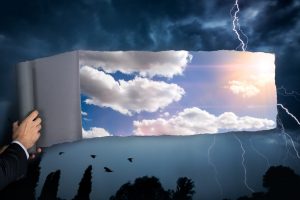
There is an advantage for an author using the novel form with the fantastic versus a short story or combination of stories as we have read previously in class. One advantage is the author’s ability to use foreshadowing and dropping hints of the fantastic. In OHYOS there are many fantastical elements at play. An example of the fantastic is the use of time. The past is constantly interwoven with the present and the future is mentioned. The fantastic, of course, depends on the story’s relation to the context of what is reality in this world. There are things that intertwine from the reality of the readers and the reality in OHYOS. “Around that time a merry, foul-mouthed, provocative woman came to the house to help with the cholera, and she knew how to read the future in cards.” We, in our reality, have psychics who claim to read the future through cards. Some people believe without a doubt that these people can actually see the future and can communicate that to us. We have people we know about in our reality that do this, even if we don’t have a direct link to them like in the realm of normalcy for OHYOS.
Our fantastic is different from OHYOS’s realm of fantastic. The insomnia plague was one that I was particularly interested in this story.
“’If we don’t ever sleep again, so much the better,’ José Arcadio Buendía said in good humor. ‘That way we can get more out of life.’ But the Indian woman explained that the most fearsome part of the sickness of insomnia was not the impossibility of sleeping, for the body did not feel any fatigue at all, but its inexorable evolution toward a more critical manifestation: a loss of memory.”
The idea that the characters are excited about not sleeping when it is usually a much-needed break from things caught my attention, and I realized that it was a way of turning the idea of a plague on its head. A plague is usually referred to when a disease comes with death. This was the death of that break from life rather than a physical death. It was the death of a fragment of reality. A death relating to a part of reality can be just as effective as the death of a person. It is what we know and what we rely on to show the edges of normalcy. There are no fantastic elements if the boundaries of the reality are undefined — even blurry boundaries are boundaries that are required.
I completely agree with your comments on how the story was impacted by form! I don’t want to say it would be impossible, but it would certainly be extremely difficult for a narrative found in a short story (or even a movie) to be this richly developed. There’s a quote that goes around, said by Marshall McLuhan, which says, “The medium is the message.” In its original context, he was talking about the study of communications as a whole and how communication methods are more important than their content. I don’t think it adapts wholesale into analyzing fiction, but it’s certainly an idea we can ruminate on. How do you think the story would be different if it had been limited to, say, 60 pages? I wonder what details or events he would have prioritized as much.
I apologize for the word “impossible” as what we have discovered through this class is that nothing is truly impossible. I should have picked a better word. I love that quote, “the medium is the message.” It certainly gives a diving board to help analyze works of fiction. I think the story would not be as well-developed as it is in the 400+ pages it is. In another class, we were reading the deviant and the longer works were much more developed than the 76 page Jekyll and Hyde story. I feel like it would not have been able to accomplish all that it did in such a short amount of pages.